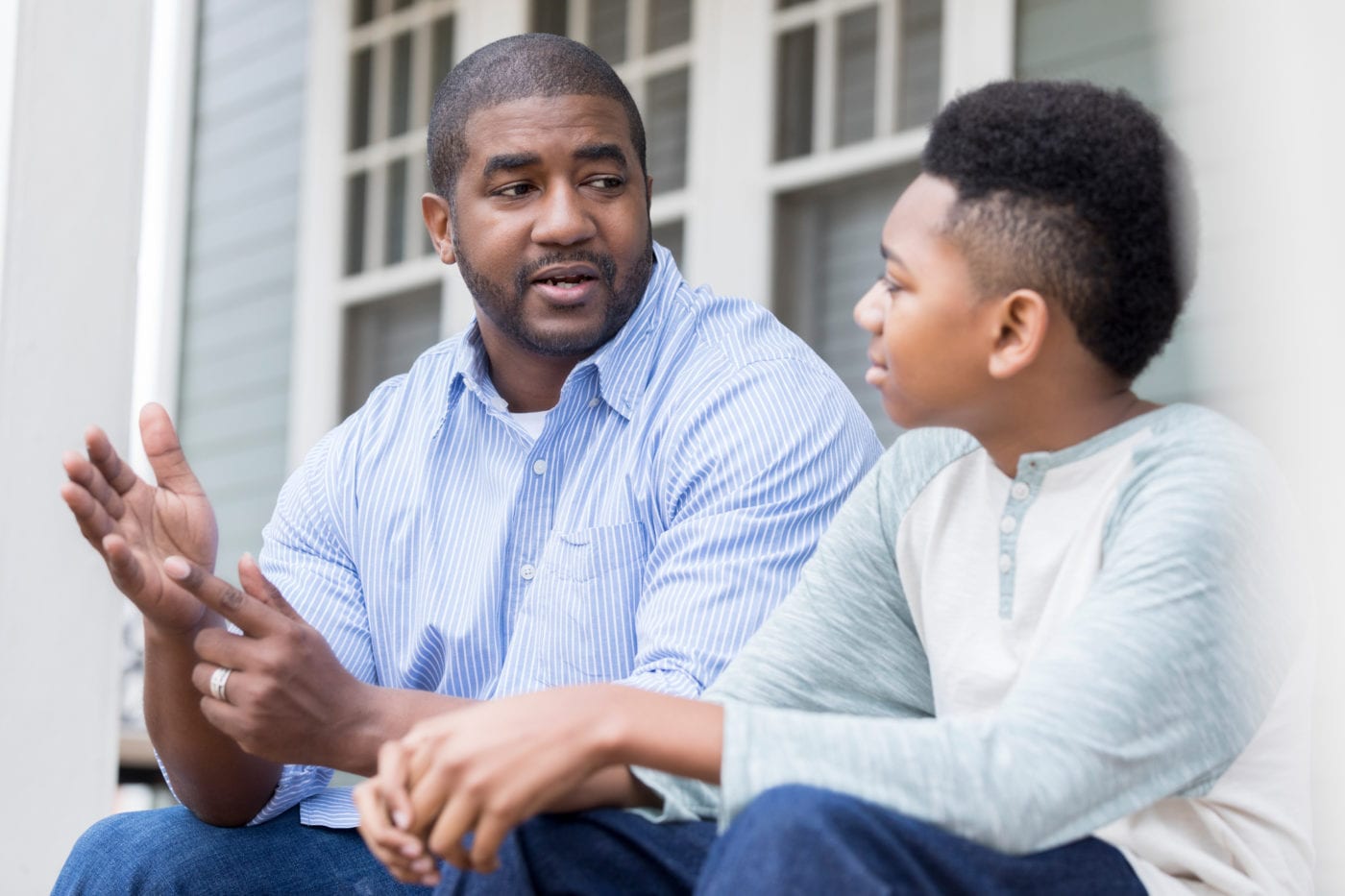I remember being super excited the day my son grabbed his glove and took the diamond for his first real baseball game. I played the sport growing up and loved it, but I didn’t remember cheering guidelines hanging on the dugout fences when I was a kid. I was surprised to read rules for spectators like, Remember, these are just kids. The umpires are human. The coaches are volunteers. It got me thinking about ballpark (and parenting) behavior.
The only reason for that sign being posted was because too many parents were getting belligerent over T-ball. It must have been pretty bad, too, to warrant those words of warning. Shouting and belittling someone over balls and strikes in Little League or starting a fight is ridiculous. You would not only look like a fool, but your child could also pick up a few disrespectful habits from the person who is supposed to set a good example for them. Sometimes, as dads, we must check ourselves because our little ones learn a lot by watching us. Here are 9 ways we teach our kids to be disrespectful.
1. Talking About People Behind Their Backs
We all tend to do this more than we admit. Sometimes unwittingly! Gossip is corrupt communication, designed to drag someone else down or paint him or her in a negative light, and when we participate, it reveals the sour motivations of our heart. Gossipers tend to show indifference toward the feelings, reputations, or perceptions of the people being targeted. That’s textbook disrespect. Limit your gossiping if you don’t want kids to mimic you. When you overhear them doing it, ask them how it would feel if they found out someone were gossiping about them.
2. Ignoring Our Bills
This is simple. Pay what you owe. When people provide you goods or services and you choose not to compensate them, it tells others that you are selfish and don’t care about their well-being. Don’t stiff people. They work hard, too. Closely monitor your spending if you feel like you can’t manage your bills well and teach your kids to be responsible with money.
3. Procrastinating
Others are counting on you. They will count on your kids, too. When we wait until the last minute to tackle a task, it strains others besides just ourselves. It tells them their time is less valuable than ours.
4. Cursing
Cursing at people is a way of belittling them, which is disrespectful for sure. Cursing is meant to be degrading. When using it to add emphasis, it usually just comes off as a cover for not articulating yourself well. Kids who hear it will mimic it. Cursing causes disrespectful kids.
5. Screaming
Screaming is a way to try to elevate yourself over others or demonstrate power over them. If this is done out of anger, it shows a lack of self-control. Legendary football coach Tony Dungy never yelled at players and still earned the NFL’s respect. Pulling someone aside and having a heart-to-heart discussion is better.
6. Being Late
Disrespectful kids pick up on your actions, and this is one thing adults do too often. Being late tells others that their time isn’t important to you. Being on time says the meeting, and the person involved, matter immensely. Being late is disrespectful. Being on time is respectful.
7. Not Tipping After a Meal
If someone worked hard for you, thank him or her properly. Not everyone can leave giant tips after meals, but leaving nothing is a major sign of disrespect for someone who is serving you.
8. Talking Poorly About Your Wife
Not everyone gets along all the time, but belittling your wife is a dangerous thing to do because it sends a clear the message that you don’t care about her feelings. If you belittle your wife in front of your kids, expect them to do the same. It is disrespectful to insinuate that one person is a lesser part of the family. It also sets a very poor precedent for when your kids get married.
9. Being Hypocritical
Holding people to a standard you are unwilling to submit to does not show respect. It shows them that, in your eyes, you’re better than them and don’t need to be confined by rules. Strive to teach humility in your words and actions.
Sound off: What habits do you need to shift in order to show respect to the people around you?











Huddle up with your kids and ask, “How do you think it makes people feel when you disrespect them?”